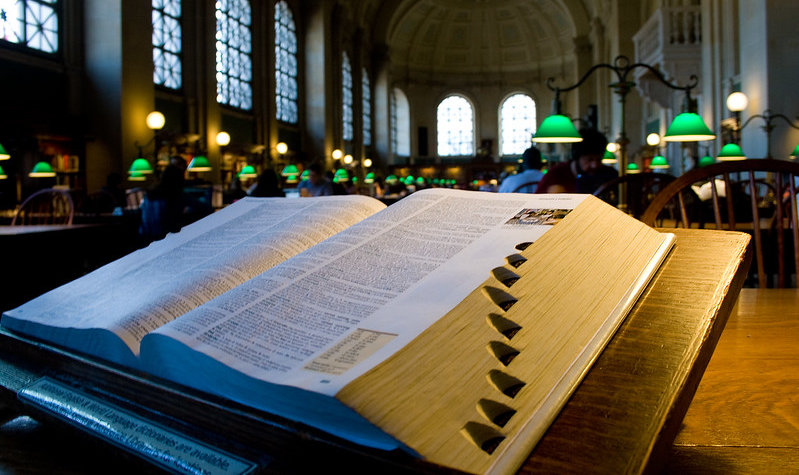Last Updated on 28-Mar-2023 by Charles Maxwell

How did a language spoken by a few hundred thousand people in the 6th Century gain world dominance to be spoken by more than 2 billion? How did English become today’s lingua franca?
This post provides excellent resources for exploring English’s development from being a minor language to the world’s most used language.
Videos—Melvyn Bragg—2003
Melvyn Bragg produced and narrated an entertaining and informative 8-episode documentary titled The Adventure of English. Produced by the British television network ITV, the series first aired in 2003. The series follows.
Episode 1, “Birth of a Language,” (approximately 6th to 10th Century)
Episode 2, “English Goes Underground,” (11th to 13th Century)
Episode 3, “The Battle for the Language of the Bible,” (14th to 16th Century)
Episode 4, “This Earth, This Realm, This England,” (16th Century)
Episode 5, “English in America ,” (17th to 19th Century)
Episode 6, “Speaking Proper,” (17th to 18th Century)
Episode 7, “Language of Empire,” (17th to 20th Century)
Episode 8, “Many Tongues Called English,” (20th Century)
Wikipedia summarizes Bragg’s 8 episodes here: https://en.wikipedia.org/wiki/The_Adventure_of_English
Videos—Robert MacNiel—1986
In 1986, MacNeil-Lehrer Productions and the BBC produced a 9-episode documentary titled The Story of English, with Robert MacNeil narrating the series. A playlist for the series is here: https://www.youtube.com/watch?v=7FtSUPAM-uA&list=PL6D54D1C7DAE31B36
Wikipedia provides information on the documentary’s production and lists the episodes here: https://en.wikipedia.org/wiki/The_Story_of_English
Videos—Other
For a 10-minute overview of the Germanic, French, and Latin influences on English, see the following video by Paul Jorgensen:
In the following video, Peter Parker reads the same passage in the tongue of English’s various stages of development.
Wikipedia
Wikipedia provides a good starting point if you want to read about the history of the English language. See these articles:
Book
Another written source is the companion book to Bragg’s 2003 documentary. Titled The Adventure of English: The Biography of a Language and written by Melvyn Bragg, the book is entertaining and informative.
The documentary narrated by Robert MacNeil also resulted in a book, The Story of English. (Note that the 3rd edition is much inferior to the 1st edition.)
For another book oriented to the general reader, try linguist David Crystal’s The Stories of English.
Podcast
Another resource is The History of English Podcast by Kevin Stroud. Stroud starts with the Indo-European proto-language. He explores the influences of the languages of early European peoples—Germanic tribes, the Celts, Greeks, Roman, Angles, Saxons, Jutes, Frisians, Norse, Goths, Danes, Franks, and Normans. He devotes many episodes discussing the development of Old English and Middle English.
Stroud began releasing episodes during 2012; and by early 2020, he had released 136 regular episodes and many bonus episodes, bringing the discussion up to the 1400s. I anticipate Stout will produce another 100 episodes to cover Modern English and bring the series up to the 21st Century.
The podcast is here: https://historyofenglishpodcast.com/episodes/
The podcast is well worth your time. It has been my companion many evenings when preparing dinner or cleaning up from a meal.
Audio Book
A charming way to immerse yourself in the sound of the language centuries ago is by hearing it read in an Early Modern accent. Most people will find Early Modern English foreign, but still very understandable.
David Crystal, who is a leading authority on English pronunciation in former times, reads William Tyndales’s English translation of the Gospel of Saint Matthew in an English accent contemporary of 1526. Tyndale’s translation of the New Testament preceded the King James Version by 85 years. It was widely published and copied. Tyndale’s translation of the Bible did more to mold Modern English than any other force.
Crystal’s short audio book provides a good sense of Early Modern English. As I said, the sound is different, but readily understood, even though the language is 500 years old. I only wish there were a similar reading of the other gospels.
The Future of English
The history of English is still being created as the language spreads, evolves, and adapts. In the following videos, David Crystal speculates about the future of English.
Share Your Comments
What have you found interesting about the history of the English language?
What resources have you found useful?
Photo Credit
English dictionary at Bates reading room, Boston Public Library, photographer Tevor Pritchard, Flickr, 6304394866.